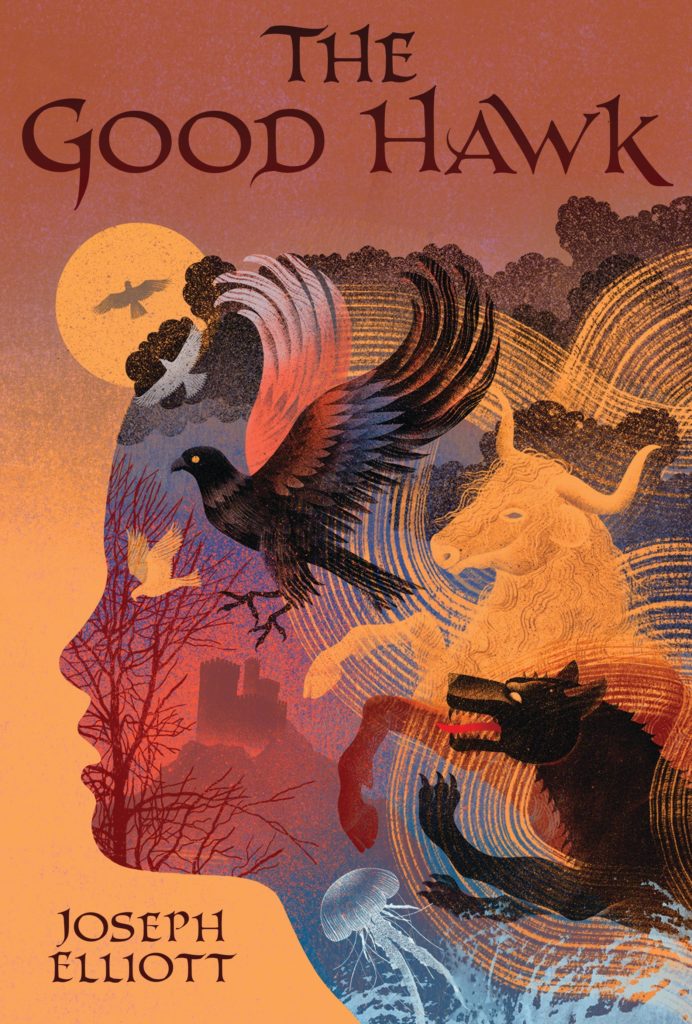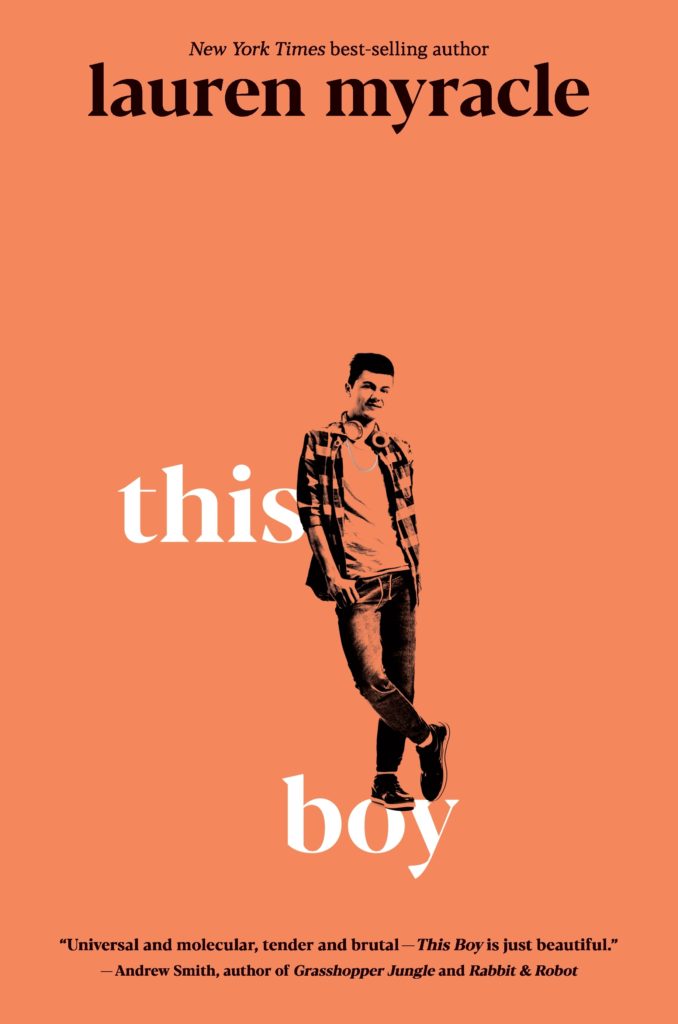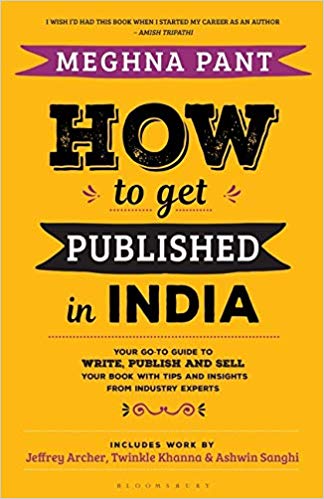Literary Agents and agencies in India, Brunch (http://www.hindustantimes.com/Brunch/Brunch-Stories/How-to-sell-and-buy-a-book/Article1-826279.aspx )
BRIEF: on literary agents and agencies in India: who they are, what they actually do, whether they serve here as they seem to do in the west as any writers’s first reader, handholder and guide.
Literary agents are defined as those who represent writers to publishers, theatre and film producers. They negotiate on behalf of the author for the best and fairest deal possible. For this, they are paid a commission, which is a percentage of the proceeds of the sale that they have negotiated for their client. It is usually 15 per cent for domestic rights and 20 per cent for international rights. According to David Godwin, “usually an advance is paid over four moments–signature, delivery, publication and paperback publication.” Author and poet, Jeet Thayil says, a literary agent is a blessing, since s/he is responsible for all the nitty-gritty administrative work, including the tedious follow up required in signing a book deal, releasing precious time for the author to focus their energies on a constructive and creative output, rather than be exhausted by paperwork.
Literary agents first burst upon the scene in nineteenth century Britain. It began with A.P. Watt whose work as a literary agent appears to have begun around 1878, when he was asked by a friend, the poet and novelist George MacDonald, to sell his stories for him. By 1881, he was known as an advertising agent and a literary agent. Initially he charged a fee for the services he offered, but soon switched to taking a 10 per cent commission on the money that he earned for his clients on any transaction he completed. By the end of the nineteenth century, he was representing some of the leading writers of the time, including Arthur Conan Doyle, Walter Besant, Thomas Hardy and Rudyard Kipling. In 1893 when publisher William Heinemann wrote a scathing portrait of a literary agent, he in all likelihood had A.P. Watt in mind: ‘This is the age of the middleman,’ wrote Heinemann. ‘He is generally a parasite. He always flourishes. I have been forced to give him some little attention lately in my particular business. In it he calls himself the literary agent.’
However uncomplimentary a statement this may have been of an agent, the truth is that a literary agent is an indispensable part of the publishing eco-system, even a century and a half later. An agent has specialist knowledge of different publishing houses and is aware of the personal tastes of editors and is able to sell written material to them, matching the writer with the right stable. Agents are also able to provide an author a range of services – reading a raw manuscript, assessing if it is fit for publication, if it is then helping them tidy it up before selling it to an appropriate publisher or if there is interest from more than one publishing house, setting up an “auction” and selling it to the best bidder, negotiating terms and contracts and collecting payments and royalties. Today, agents are expected to be a filter between the publisher and the writer but also be the author’s agony aunt and professional advisor, rolled in one. They also network with agents and publishers in other territories, across the world — ensuring that the book gets published across the globe, and increasingly in different languages.
So is an agent necessary? A question often asked by new as well as seasoned authors. For well-known novelist, Hari Kunzro, “It’s now more or less impossible to access editors at mainstream publishing houses without going through an agent. The volume of unsolicited submissions means that the ‘slush-pile’ is enormous. Apart from using an agent to get connected to the right editor at the right publishing house, agents are also necessary to help you negotiate the increasingly-complex world of book contracts. Unless you know what percentage discount Amazon is going to try to negotiate for a paperback sale, or the going rate for Ebook royalties in South Africa, or whether you should be assigning Canadian rights to your UK publisher, or reserving them for your US publisher, you need an agent. Publishing is probably more competitive than it’s ever been. As the book market transforms, and thousands of hopeful new writers pile in, looking for readers, writers need to have someone on their side.” Having said that, successful translator, Arunava Sinha has no literary agent representing him, but he does realize their significance. (Arunava translates from Bengali into English, he has 14 books published in India, with 6 publishers, 2 titles have been published abroad across 15 publishers and in 11 languages, including English.) According to him, an agent in the Indian publishing landscape has three crucial aspects: for an author to reach an Indian publisher; for an author to find a foreign publisher and in qualitative consulting.
In India, the concept of literary agents is relatively new, about seven years. The oldest agency is Jacaranda, run by Jayapriya Vasudevan and Priya Doraswamy. For them, agenting in India “is hard to compare to any other part of the world.” But they do see this sector growing rapidly in India, especially since they feel that overall professionalism is setting in and processes are getting streamlined. They are beginning to discover that writers prefer to deal with agents and it is a “fair deal” since w”writing is a very personal journey and a good agent is asked to manage everything.” They do warn their authors, especially the first time authors that publishing is an extremely slow industry and submission to a publisher is very “angst driven”. So, as agents they are expected to manage the author’s “nervous energy”. They give advice ranging from editing, managing, marketing and sales. Within the Indian context, they are recognized and with the current mantra for foreign publishers being that they want to link with those who are strong in their own countries, Jacaranda’s position is well established. But as Jayapriya points out, “Our geographical locations being widely spread, with Priya being in New York and my being in Singapore, our list is eclectic and interesting. Selling rights also becomes more direct in several countries. For America for instance, we do not use any sub agents.” As they affirm, “It is a word of mouth industry and it is all relationship based. If we think it is a viable sale, To be connected to the world is a must deal.”
The second literary agency recognized in India and abroad is Siyahi, headed by Mita Kapur who is based in Jaipur. According to Mita, “Siyahi started with 2 authors in 2007 and we now have some 82 authors, with a growth rate of 100% every year and this year I am expecting double the growth rate. The turnover for Siyahi is 1.25cr which is inclusive of the funding that comes in for the festivals. I get around 5 submissions every day but we select only 2 or 3 out of our blind submissions received every year. The number of authors growing is because either they are already published authors or have come through some reliable source which we decide to take on only if I am convinced of the merits of the book.” Mita regularly negotiates rights into regional languages as well, although she works with sub-agents for international languages. “We work with Hindi, English, Tamil, Malayalam, Gujarat, Marathi, Punjabi, Russian, Portuguese, French, Italian, and German.”
Writer’s Side, based in Delhi was launched by Kanishka Gupta. According to him, “In a short-span of 22 months we have placed over 64 books with major and reputed publishers. Almost 80% of my clients are first-timers I have to be on my toes all the time. Some questions can really put your patience to test but being a published writer myself I know that feeling very well and can easily relate.” Sherna Khambatta, based in Mumbai, established her agency in 2007. But she prefers to represent non-fiction although does not say no to fiction. She represents in English, Marathi and Hindi.
Some of the other prominent players in India are David Godwin, Shruti Debi of Aitken Alexander agency, and as of this year, the Tibor Jones Literary Agency with their South Asia prize for unpublished manuscripts. Shruti Debi, who has immense editorial experience, and is now in charge of the Indian office of Aitken Alexander feels that a book is a hugely durable item. And nor does a writer have any parameters of quality or nature of the deal that they are getting into. So she feels that it is “healthy to have an agent, who becomes a sounding board for the author and publisher.” Having said that she adds, “I don’t feel like that an author can do without me, but I feel that those who have me for an agent do not suffer to have me.” Picking up an author is not a judgment value, but a literary value. Interestingly enough, as of a few months ago, Aitken Alexander has begun to represent Penguin Books India abroad. It helps by having an agent like Shruti on your side as she says, “I am a big fighter for authors.”
Advice from David Godwin for authors is “to find an agent you have to write a terrific book then you will find someone good. It is all in the writing. Agents want great books and are on the lookout for them.” Sophie Lambert, Director, Tibor Jones Agency adds, “Do your research. Always address query letters to specific agents rather than the agency. Approach agencies that represent authors who are similar but not too similar. Personal recommendations count a lot and if someone can introduce you to an agent then even better. You’ve got to make sure to catch their attention.” She continues, “India has always had a rich literary heritage and there have always been Indian authors whose work has been read throughout the world. The thing that’s changed is how widely and how much international as well as Indian authors are being read in India. There’s a real appetite for literature and it’s exciting to see the world’s largest democracy embrace that. It’s no more difficult for an Indian author to get a literary agent than an author from any other country and at a time when the Indian market is growing, in some respects it should be a selling point.”
Given how robust the growth is for agenting in India, especially with the deluge of writers/manuscripts being written, it is no surprise that some publishers are venturing into this area as well. Of course, they are quick to add that their publishing programmes are independent of the literary agencies. But there is a conflict of interest between these two and it is not clear how efficiently can these verticals be operated. Today, with the tremendous churning in publishing it is not enough to say that no precedence exists for such a business model, but one can safely add that this is an arrangement peculiar to India alone.
Publishers like Karthika V.K., Publisher and Editor-in-Chief, HarperCollins, says that “the agents make it a level playing ground. Publishers, see the book as a product, and can engage for the duration of the production of the manuscript into a book, but not more, whereas an agent will always be there for the author, before and after publication.” Kapish, Managing Director, Rupa Publications, says of literary agents that it of a “participatory nature, they can help you find writing. Fresh writing creates longevity in the industry.” Milee Aishwarya, Random House India, says that it does help to have agents who help to expand the list and get a sense of the market.
Renuka Chatterjee, Chief Editor, Westland does have the following word of caution about agenting in India: “The advantage of agencies is that they act as the filtering process and sift the wheat from the chaff – at least that is what they are supposed to do. The ground reality is that, with the possible exception of one or two, very few of them do. I have seen this happen time and again — they start off small, and really make an effort to find original, good new voices. But then the greed to just keep on adding numbers and boast of the number of authors you have and the titles you’ve sold, takes over, and they start taking on anyone and everyone. The result is that I cannot think of any agency in India today who doesn’t have a really mixed bag. You can never be sure of the quality — you can’t say that, well, this has come from ‘X so it has to be good, and give it priority on your reading list – unless of course, it is an already published author whose quality you know. So, very often, submissions from agents just become an adjunct to the slush pile, and you read them as and when you get the time. I really wish agents in India would be more discerning. It’s the reason why we still take submissions from any foreign agent more seriously. It’s not a question of a colonial hangover — but you know that if a manuscript has come from a David Godwin or Andrew Wylie or Blake Friedman, it will have a certain basic level of quality which should make it worth looking at. You may not ultimately take it on, if the stakes are too high, or if your individual response to it is not strong enough, but you would certainly take the time to read it. That’s not always the case with local submissions. May be the rush to sign up authors amongst agents here, is a certain insecurity — because the whole agency scene here is still nascent, may be they think that if they don’t sign up this author, another one may not come their way soon enough — or be snapped up by a foreign agent — which is another fear, as most authors, given the choice, would prefer to have an agent in London or New York than in New Delhi!
I know many agents feel they are successful because by and large, they are able to sell whatever they represent. But selling in India is easy, especially now with the multiplicity of publishing houses — from
Penguin and Harper to Srishti and others. So what gets rejected by some, will find a place somewhere else, especially if you are willing to settle for a less than six-figure advance. I’m told that’s a good thing in the long run — everything has its place. Perhaps that’s so — but I feel angry that so much rubbish ends up getting published. All those trees cut down for nothing!”
The future of publishing and literary agents is positive. Shruti Debi says that the era of literary adventures is over, where the publishing industry is partial to debut, but literary agents are quality filters. “2012 will be an interesting year, when we are expecting Indian kindle, some sort of self-publishing to happen; the technology will be important; shadow involvement – you become an ally in the same process and play to the author’s strength.” For Saugata Mukherjee, Publisher, Pan Macmillan, “I firmly believe literary agents in India are here to stay. It’s an expanding market and naturally there will be space for genuine professionals with a nose for the right kinds of books. Hopefully more and more writers from the Indian subcontinent will find a publishing window through these agents and not get lost in the deluge of slush piles in publishing offices. While some of the international agents already do a lot of business with Indian publishers it’s time some of the Indian agents too make their mark. I’d say most literary agencies are still in their infancy in India and we’ll only know where they are headed in a few years as the profession matures.” For Jacaranda, it is an interesting time, but the business will change dramatically and processes will be streamlined, “once publishers stop looking at direct submission.”
While researching for this article, word had begun to trickle in of new literary agencies being established in India, whether by editors setting themselves up as independent agents; individuals passionate about reading, who are branching out into agenting or even agencies abroad, testing the waters in India, but it is early days as yet. They are as yet to prove their mettle in this landscape or even by establishing Indian authors abroad.
Jaya Bhattacharji Rose is an international publishing and literary consultant. She may be contacted at [email protected] or follow her on Twitter @JBhattacharji
Advaita Kala
I didn’t have an agent when I submitted in India, honestly, I didn’t even think of it. Indian publishers have pretty straight forward submission guidelines and I made an online submission. It was only when Almost Single was solicited by Random House in the US that I realised I would need representation and it worked out very well as the book went into auction, something I would not have managed on my own. Publishers abroad prefer to work with agents, there are a couple of reasons, my American editor tells me that especially since the big publishing downturn in 2009 (in the US) and publishing job cuts, publishers are more dependent on agents for editorial support and sifting through manuscripts. So in a lot of ways representation abroad has become even more important. I continue to handle my own affairs in India and had an agent for foreign rights. Presently I am in between publishers and in between agents so I can’t really be more specific about what swings the decision one way or the other but I am sure I will figure it out soon enough!
Tabish Khair
Having grown up in Gaya until I turned 24, and having gone to school and university in Gaya too, the path to becoming a writer was a dark and confusing one for me. There were no guides, no patrons, no contacts, no peers who were heading into media or publishing. There was a lot of well-meaning discouragement. So the very notion of having a literary agent did not cross my mind even after I had become fairly established as an author, and had moved to Delhi and then to Denmark. But living in a small town in Denmark, I realised that I needed agents who were based in the centres of literary publicity — Delhi or London or New York. And that is when I decided to get an agent. But I wanted my main agent to be based in India, as I see myself as an Indian writer, with the co-agents based in London and New York. I realised that this was not what was commonly done, but I went ahead with it anyway. And I am happy I did.
Paro Anand
So, why, at this late, late stage of my pretty successful career as a writer for adults, young adults and children do I suddenly feel the need for a literary agent to represent me? I have no problems finding a publisher, in fact, I have several asking me to do books for them and some getting upset that I’ve gone elsewhere. So why now? I just think that the time for lit agents in India is finally here, at least for me. I feel the need to have someone who is professionally committed to looking after my best interests. I want someone who I know will have my back and watch out for me. I want someone who is able to look outside my own small world of contacts and connections. And I don’t want to be having to sell myself anymore. I find it embarrassing to have to push myself. I know that my work itself is good and worthy of pushing, but now I need a team to look after my baby after I’ve given birth to it. I need someone who I can trust and someone who will allow me to do what I do best – write and interact with my audience, without getting into nitty gritty, which I find myself doing a lot of the time. I’m not good at it so it takes a lot out of me to do it. Something like contacting sales people to ensure that my books will be there when I’m doing an appearance. As an author, my contact person is the editor, so it becomes a very four cornered affair if I’m contacted by the venue or organizer of the event, then i contact my editor, who contacts the sales team and then it’s a lot of back and forth. And very often, it ends up with the books not even being there. And this is certainly not with one publisher, but each and every one. It’s no one’s fault, really, it’s just that I’m the wrong person to be getting into it. it needs a system and i think my agent could be involved in this – at least i hope so.
For the longest time, i thought that my job was to write the book and the rest was not up to me. But now i see, that after having given birth to the baby, it’s still your job to make sure that she reaches her full potential, and sometimes there’s a lot of hand-holding involved. I’m more than willing to grow my babies up, and i love the hand holding. But i need my team to sort out the details. I want to feel like a bit of star!!! Is that so wrong? Will my agent do that for me?
Amandeep
As such our English publishing industry is not very organised and I feel even the volumes and hence payments are not very large, so agents who normally have a much fuller function in publishing, are reduced to being only book placers and not much more. It is a fact that it is hard for an unknown writer, without lineage or connections, to be easily published. The cycles of acceptance and rejections are long and many reputed firms have a caveat during submission: there is no guarantee of response. Hence, I feel some writers take help of agents to place their books with publishing houses, often on the basis of some commission. These kinds of agents do not do much more than give a quick glance to the manuscripts and sometimes some minimal editing and then work their wire to get the book placed.
The wholesome function of an agent as a quasi or even full editor, guardian of the writer account with publisher(s), seeking and placing book with foreign agents/publishing houses, support system for the writer, is very rare in India. Some extremely lucky and talented writers have such agents but most of them are abroad (both writers and agents).
So, in a topsy turvy world of publishing, local agents for local books (won’t even call them agents for they are mostly ‘book placers’ and buzz creators akin to PR) do thrive for a brief while and then fade off. For the size of the industry, in terms of titles and not volumes or sales figures, we would do well even if we even had decent scouts, but even they are missing. These book placers often do harm, for instance with my second book, because they are limited to just their own individual wires and contacts and vibes with people in the industry. All this is dismal and the only hope, for me, is to do my job and wait it out until someone discovers the work and wants to take it ahead. Very modestly, like it happened with Coetzee or Marquez.






